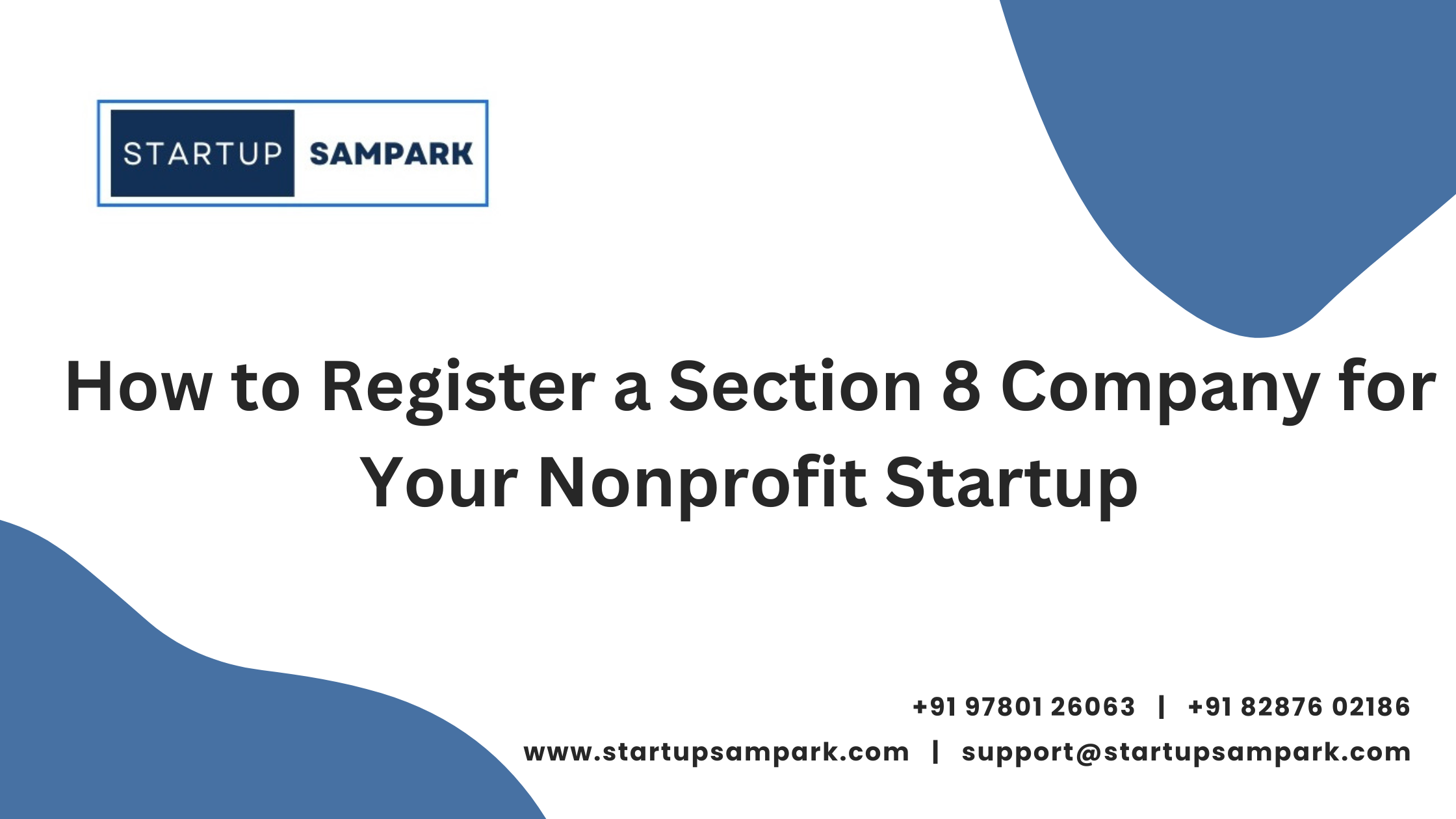How to Register a Section 8 Company for Your Nonprofit Startup
Section 8 Companies
A Section 8 company is a special type of nonprofit organization under the Companies Act, 2013 in India, primarily formed for promoting commerce, art, science, religion, charity, or any other useful object. It is specifically designed for social, charitable, or educational purposes. Unlike regular companies, Section 8 companies do not distribute profits to members or shareholders but reinvest the surplus revenue in furthering their social objectives. For a nonprofit startup aiming to have a structured and legally recognized entity with limited liability and credibility, registering as a Section 8 company is an ideal choice. The process, although detailed, ensures legal compliance and allows access to various benefits, including government grants and tax exemptions.
Eligibility Criteria for a Section 8 Company
Before starting the registration process, it is essential to meet certain eligibility criteria for setting up a Section 8 company in India. The first and foremost requirement is that the company must be formed for promoting charitable causes like education, social welfare, environment protection, healthcare, or any other public utility purpose. The company must ensure that no part of its income is distributed as dividends to its members. Instead, the funds must be applied solely to its objectives. Additionally, a Section 8 company must have at least two directors (for private companies) or three directors (for public companies), and there must be no minimum capital requirement. The company’s name should reflect its nonprofit status, and it should include terms like “Foundation,” “Trust,” or “Association.”
-
 Startup Registration (DPIIT Recognition)₹8,850.00
Startup Registration (DPIIT Recognition)₹8,850.00
Choosing a Name for Your Section 8 Company
The name of the company plays a vital role in conveying the organization’s mission and purpose. The name should reflect the nonprofit nature of the business and cannot be similar to any existing company name or trademark. It is essential to get approval for the proposed name before filing for incorporation. The name should also include terms like “Foundation,” “Charity,” or “Trust” to clarify its nonprofit nature. To check for the availability of the name, the applicant can file an application with the Registrar of Companies (RoC). Once the name is approved, the registration process can move forward.
Filing for Section 8 Company Registration
The registration of a Section 8 company requires the filing of several documents with the Ministry of Corporate Affairs (MCA). The application should include the proposed company’s name, memorandum of association (MOA), articles of association (AOA), a declaration from directors regarding compliance with Section 8 of the Companies Act, and a few other key documents like identity proof, address proof of directors, and a copy of the registered office address. The process begins with filling out an application for Incorporation of a Company (Form SPICe) through the MCA portal. The application must be signed by all directors and is then submitted for approval to the Registrar of Companies (RoC), who will review the documents before issuing a certificate of incorporation.
Obtaining the License from the Central Government
One of the unique aspects of registering a Section 8 company is obtaining a license from the Central Government. After submitting the application to the RoC, it is forwarded to the Ministry of Corporate Affairs for review. The Ministry reviews the company’s objectives to ensure they align with public welfare and charitable goals. Once the review is completed, the Ministry will issue a license under Section 8 of the Companies Act. The license confirms that the company has met the necessary criteria to operate as a nonprofit entity and gives the company legal recognition. This license is critical for continuing the registration process.
Post-Incorporation Compliance and Tax Benefits
Once the Section 8 company is registered and incorporated, the company must comply with ongoing regulatory requirements. This includes holding regular board meetings, maintaining proper books of accounts, filing annual returns with the Registrar of Companies, and adhering to other statutory compliance requirements like GST registration (if applicable), and tax exemptions under Section 80G and 12A of the Income Tax Act. A Section 8 company is eligible for tax exemptions and benefits, which can significantly support its mission. Additionally, Section 8 companies can raise funds through donations and grants from various government and private sector sources, providing financial stability for their activities. Regular compliance with these rules ensures the company retains its nonprofit status and avoids penalties or legal issues.
Startup, India
-
 Startup Registration (DPIIT Recognition)₹8,850.00
Startup Registration (DPIIT Recognition)₹8,850.00















Post Comment